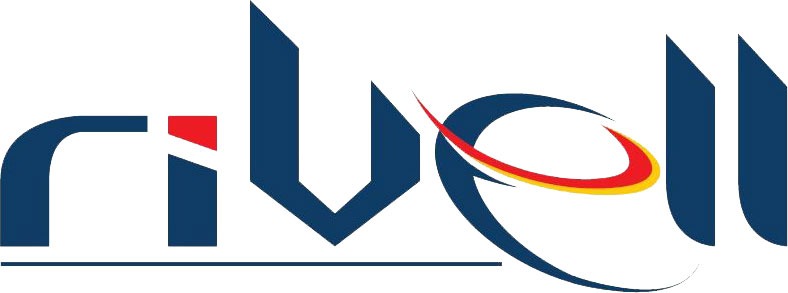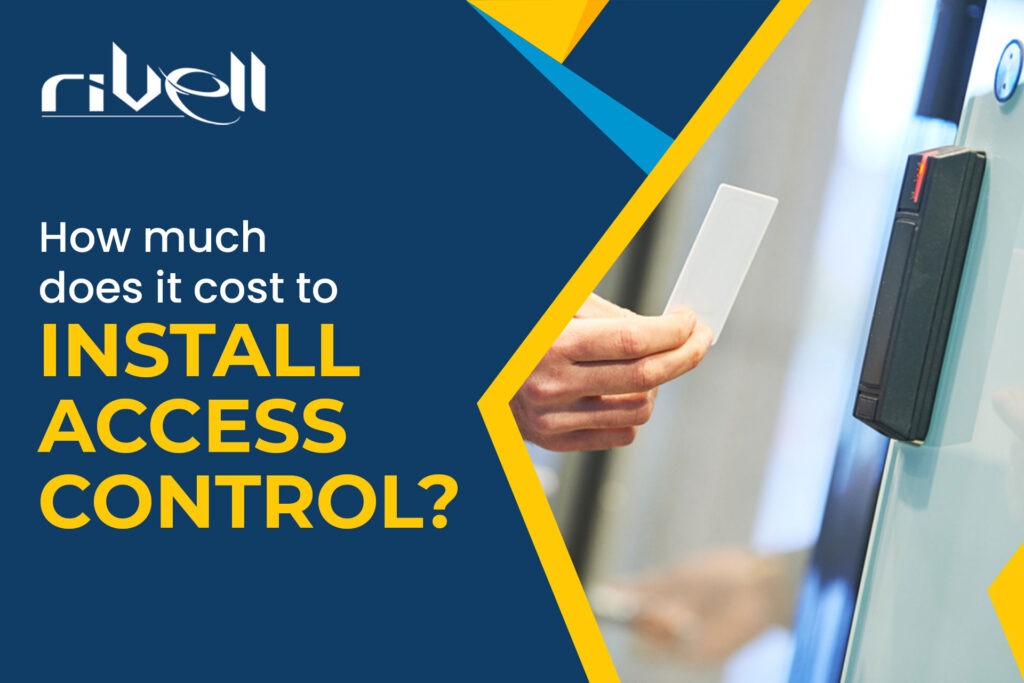Introduction
In an era where security is paramount, access control systems have become the bedrock of safeguarding physical spaces. These systems go beyond traditional locks and keys, offering a sophisticated means of regulating entry, ensuring only authorized individuals gain access to secured areas. As businesses and residential spaces increasingly embrace the need for enhanced security, the importance of understanding access control systems and, more specifically, the costs associated with their installation cannot be overstated.
Brief Overview of Access Control Systems
Access control systems represent a technological evolution in the realm of security. Gone are the days when a physical key was the sole gatekeeper to a secure space. Today, access control systems encompass a diverse range of methods, from traditional key cards and PIN codes to cutting-edge biometric identifiers and smartphone-based access. The versatility of these systems allows for tailored security solutions, catering to the unique needs of businesses, institutions, and residences.
According to Markets and Markets, The global Access control market size is projected to grow from USD 9.9 billion in 2023 to USD 14.9 billion by 2028; it is expected to grow at a CAGR of 8.4% from 2023 to 2028.
Significance of Understanding Installation Costs
While the importance of access control systems is clear, the financial aspect of their implementation is a crucial consideration. Understanding the installation costs associated with access control systems is not just a matter of budgeting; it is a strategic investment in the overall security posture of a space. It involves a comprehensive evaluation of various factors, from the type of system chosen to the complexity of the installation process.
Investing time and resources in comprehending these costs ensures informed decision-making. It allows businesses and individuals to align their security needs with their budget constraints, striking a balance that ensures both efficacy and cost-effectiveness. Recognizing the significance of installation costs empowers stakeholders to make strategic choices, whether they are securing a commercial property, educational institution, or a residential complex. Expect your budget to be in the range of $1000 to $12,000 for an access control system that prioritizes quality and longevity.
As we embark on this journey through the intricacies of access control installation costs, we aim to equip you with the knowledge needed to navigate this crucial aspect of security implementation. From exploring different types of access control systems to delving into the factors that influence costs, our comprehensive guide aims to provide clarity and empower you to make informed decisions for a secure future.
Understanding Access Control
Access control systems serve as the digital gatekeepers of physical spaces, offering sophisticated means of regulating entry and ensuring the security of premises. This section provides a comprehensive understanding of access control, from its fundamental definition to the diverse types of systems that have evolved to meet the complex security needs of modern environments.
Definition of Access Control Systems
At its core, access control is the practice of restricting or granting entry to a physical space based on predetermined criteria. It represents a shift from traditional lock and key mechanisms to more dynamic and technologically advanced solutions. Access control systems are designed to manage and monitor entry points, providing a layered security approach that goes beyond the limitations of conventional methods.
Types of Access Control Systems
Access control systems come in various types, each catering to specific security requirements and preferences. Here is an overview of the primary types:
Traditional Key Card Systems
- Utilizes physical key cards with magnetic strips or embedded RFID technology.
- Commonly used in commercial buildings and hotels.
PIN Code Access Systems
- Relies on personal identification numbers (PINs) entered on a keypad for access.
- Offers a cost-effective solution with a moderate level of security.
Biometric Access Systems
- Employs unique biological features such as fingerprints, retinas, or facial recognition for identification.
- Provides a high level of security and eliminates the need for physical credentials.
Smartphone-Based Access Control
- Utilizes mobile devices as access credentials.
- Offers convenience and flexibility, especially in modern, tech-savvy environments.
Proximity Card Systems
- Requires users to place a card or fob in close proximity to a reader for access.
- Balances convenience with security.
Smart Card Systems
- It combines traditional card technology with embedded microprocessors for enhanced security.
- Commonly used in high-security environments.
Read More : What are the most common access control systems?
Overview of Traditional and Advanced Access Control Methods
Traditional Methods
- Lock and Key: The conventional method, still widely used for basic security needs.
- Mechanical Keypads: Require a physical code to gain access.
Advanced Methods
- Electronic Keypads: Utilize electronic systems for code input and access control.
- Biometric Scanners: Incorporate advanced biometric technology for precise identification.
- Mobile-Based Systems: Leverage smartphones and apps for seamless access.
Understanding the evolution from traditional to advanced access control methods is crucial in choosing a system that aligns with the specific security needs of a given environment. As we navigate the intricacies of access control installation costs, this foundational understanding sets the stage for informed decision-making, ensuring that the chosen system not only enhances security but does so in a manner tailored to the unique requirements of the space.
Factors Influencing Access Control System Installation Costs
As organizations and individuals embark on the journey to fortify their premises with access control systems, a critical aspect that demands attention is the associated installation costs. The intricacies of these costs are influenced by a myriad of factors, each playing a pivotal role in shaping overall investment. In this section, we dissect the key factors that contribute to access control system installation costs, providing a nuanced understanding for informed decision-making.
1. Type of Access Control System
The selection of the access control system itself serves as a foundational determinant of installation costs. Basic systems, such as traditional key cards or PIN code setups, generally incur lower installation expenses. However, as the complexity and sophistication of the system increases—especially with advanced biometric or smartphone-based access control—the associated installation costs rise proportionally.
2. Number of Entry Points
The scale of the security implementation, measured by the number of entry points requiring access control, directly impacts installation costs. Outfitting a single main entrance is likely to be more economical compared to securing multiple doors, gates, or access points. A thorough assessment of the premises is essential to accurately estimate the coverage needed and subsequently determine the installation costs.
3. System Complexity
The level of complexity inherent in the access control system is a significant cost influencer. Basic systems with straightforward functionalities may have lower associated installation costs, while more complex systems that integrate with other security measures, such as surveillance cameras and alarms, come with a higher price tag. The features desired—ranging from basic entry and exit management to comprehensive security integration—directly impact the complexity and subsequent installation costs.
4. Installation Labor
The expertise required for a seamless installation contributes significantly to the overall costs. The intricacy of the process, including wiring, configuration, and potential infrastructure enhancements, necessitates the involvement of skilled professionals. While the cost of labor may vary, investing in experienced technicians ensures not only secure implementation but also contributes to the long-term reliability of the access control system.
5. Type of Credentials
The choice of access credentials—be it key cards, PIN codes, biometrics, or smartphone-based access—affects installation costs. Biometric systems, for example, involve more intricate setup procedures, potentially increasing labor costs. The type of credentials selected influences the technological requirements of the system and consequently contributes to the overall installation expenses.
6. Integration with Other Systems
The decision to integrate the access control system with other security or building management systems introduces additional costs. While such integration enhances the overall security posture, it requires compatibility assessments, additional equipment, and specialized expertise. Understanding the desired level of integration and its associated costs is crucial in estimating the total installation investment.
7. Maintenance and Support
Beyond the initial installation, ongoing maintenance and support are essential considerations. Certain access control systems may require regular updates, troubleshooting, or technical support. Factoring in the long-term costs of system upkeep and support is vital for a comprehensive understanding of the overall investment.
8. Customization and Scalability
Opting for a customized solution tailored to specific needs may contribute to increased installation costs. However, customization ensures that the system aligns precisely with the security requirements of the premises. Additionally, considering scalability during the installation phase—investing in a solution that can accommodate future expansion—can impact both upfront and long-term costs.
Conclusion
In conclusion, the decision to install access control is a strategic investment in the safety and security of your property. The overall cost is a multifaceted consideration, influenced by the type of system, the number of entry points, complexity, and additional features. This comprehensive exploration aims to equip you with the knowledge needed to make an informed decision about the cost of access control installation. Remember, while the upfront investment may seem significant, it is a proactive step toward ensuring long-term security and peace of mind.
Are you Ready to install an access control system for your business?
Choose Rivell as your dedicated security partner and let us embark on a journey to elevate your security to new heights.
Call at (609) 422-5900 or contact us.
Frequently Asked Questions
Q: What is an access control system, and how does it enhance security?
A: An access control system is a security solution that regulates entry to physical spaces. It enhances security by allowing authorized individuals to access specified areas while preventing unauthorized entry, thus safeguarding against potential threats.
Q: What types of access control systems does Rivell offer?
A: Rivell provides a range of access control solutions, including traditional key card systems, PIN code access, biometric identification, smartphone-based access, proximity card systems, and smart card systems. Each is tailored to meet specific security needs.
Q: How much does it cost to install an access control system for a small business?
A: The cost varies based on factors like the type of system, the number of entry points, and desired features. On average, small businesses can expect to invest between $2,000 and $8,000 for a quality access control system from Rivell.
Q: Is the installation process complex, and do I need professional assistance?
A: The complexity of installation depends on the chosen system. Rivell recommends professional assistance to ensure a seamless setup. Our experienced technicians handle the intricacies, ensuring optimal performance and security.
Q: Can I customize the access control system to fit the unique needs of my business?
A: Absolutely! Rivell specializes in crafting customized solutions. Whether you need specific features, integration with other systems, or scalability options, our team works closely with you to tailor the system to your business’s unique requirements.











